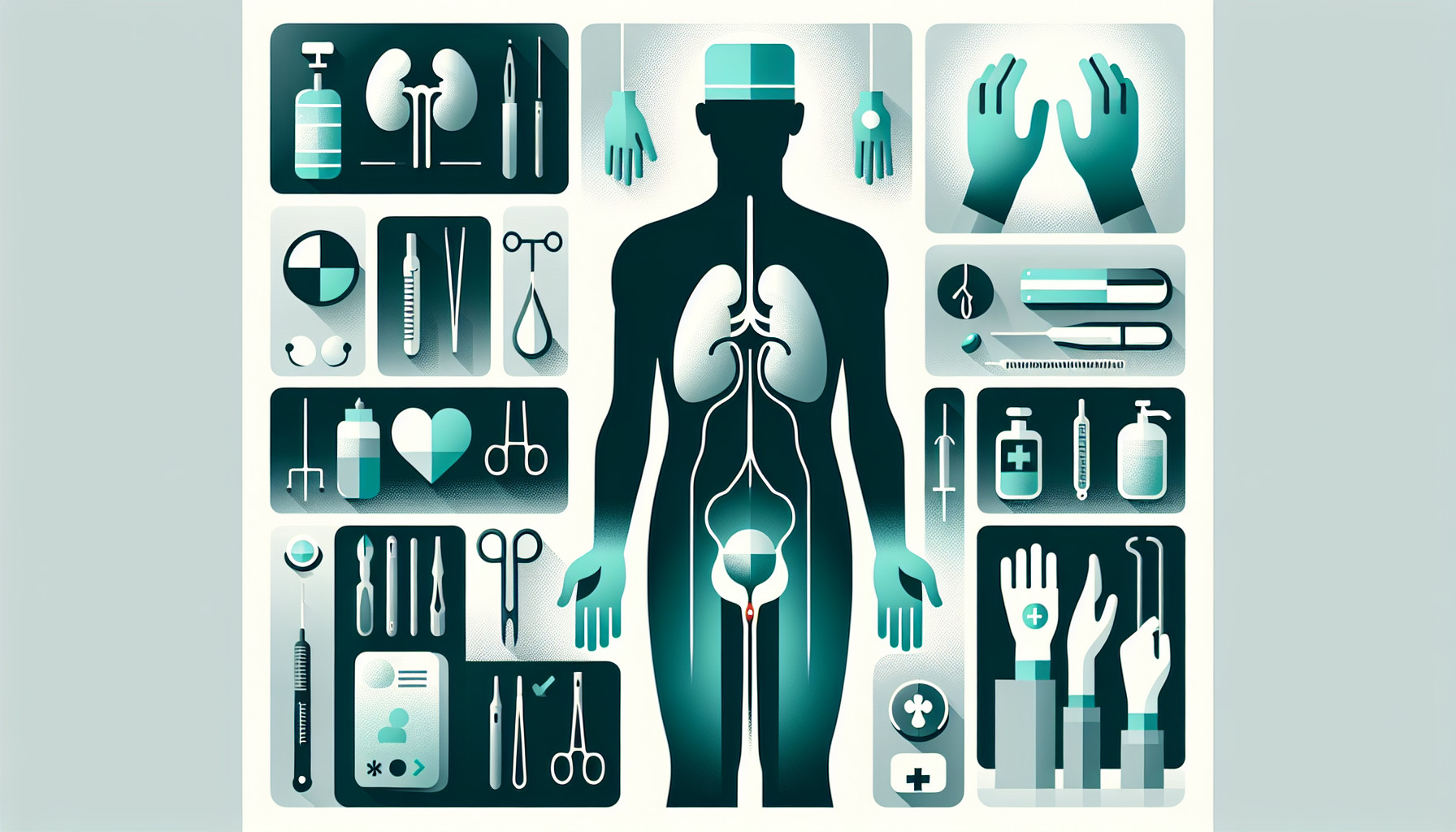Our Summary
This research paper does not provide an abstract, but from the keywords, we can infer that the study focuses on the relationship between a hormone called angiotensin, the body’s compensatory response (how the body reacts to changes to maintain its normal function), nephrectomy (the surgical removal of a kidney), and renal blood flow (the blood flow in the kidneys).
The research likely investigates how these factors interact - particularly, how angiotensin hormone levels and the body’s compensatory mechanisms might affect blood flow in the kidneys after one kidney has been surgically removed.
FAQs
- What is a nephrectomy?
- How does angiotensin relate to the process of nephrectomy?
- What is the compensatory response in renal blood flow after a nephrectomy?
Doctor’s Tip
After a nephrectomy, it’s important to stay hydrated and monitor your urine output to ensure proper kidney function. Be sure to follow your doctor’s instructions for pain management and avoid heavy lifting or strenuous activity until you have fully recovered. You may also need to have regular follow-up appointments to monitor your kidney function and overall health.
Suitable For
Nephrectomy, or the surgical removal of a kidney, is typically recommended for patients with the following conditions:
Kidney cancer: Nephrectomy is often recommended for patients with kidney cancer, especially if the cancer is localized to one kidney and has not spread to other parts of the body.
Kidney stones: In some cases, nephrectomy may be recommended for patients with large or recurrent kidney stones that are causing severe pain or other complications.
Kidney disease: Nephrectomy may be recommended for patients with end-stage kidney disease or other severe kidney conditions that are not responding to other treatments.
Polycystic kidney disease: Nephrectomy may be recommended for patients with polycystic kidney disease, a genetic disorder that causes fluid-filled cysts to form in the kidneys and can lead to kidney failure.
Severe kidney trauma: In cases of severe kidney trauma, such as from a car accident or other injury, nephrectomy may be necessary to remove a damaged or non-functioning kidney.
It is important to note that nephrectomy is a major surgical procedure and should only be considered after careful evaluation and discussion with a healthcare provider.
Timeline
Before nephrectomy:
- Consultation with a healthcare provider to discuss the need for nephrectomy and potential risks and benefits.
- Pre-operative testing and evaluations to assess the patient’s overall health and suitability for surgery.
- Admission to the hospital on the day of surgery.
- Anesthesia administered before the surgery begins.
- Nephrectomy surgery performed to remove the affected kidney.
After nephrectomy:
- Recovery in the hospital for a few days following surgery.
- Monitoring for complications such as infection or bleeding.
- Pain management to help alleviate discomfort from the surgery.
- Gradual return to normal activities following discharge from the hospital.
- Follow-up appointments with the healthcare provider to monitor healing and kidney function.
- Adjustment to life with only one functioning kidney, including potential dietary and lifestyle changes.
What to Ask Your Doctor
- Why do I need a nephrectomy?
- What are the risks and benefits of having a nephrectomy?
- What is the recovery process like after a nephrectomy?
- Will I need any additional treatments or medications after the surgery?
- How will a nephrectomy affect my overall kidney function?
- Are there any alternative treatments or procedures that could be considered instead of a nephrectomy?
- What can I do to prepare for a nephrectomy surgery?
- How long will I need to stay in the hospital after the surgery?
- What are the potential complications or side effects of a nephrectomy?
- How often will I need to follow up with you after the surgery for monitoring and care?
Reference
Authors: Almutlaq RN, Evans LC. Journal: Am J Physiol Renal Physiol. 2022 May 1;322(5):F575-F576. doi: 10.1152/ajprenal.00063.2022. Epub 2022 Mar 28. PMID: 35343851
